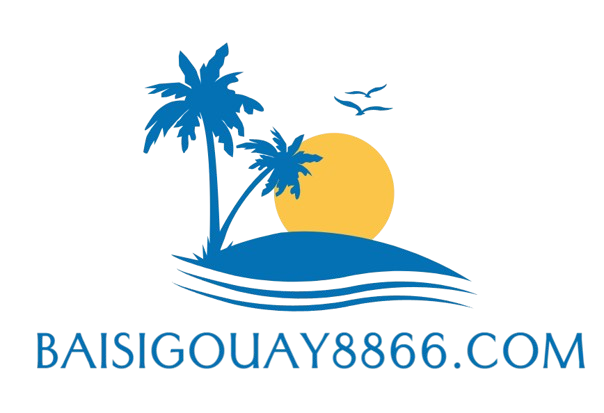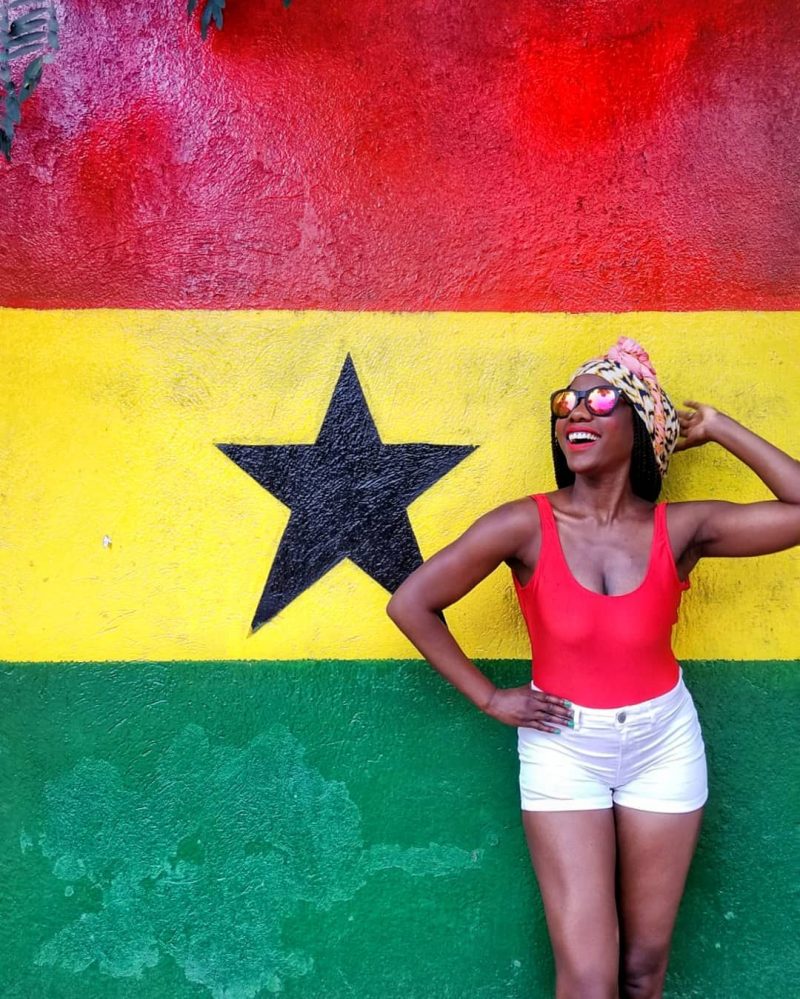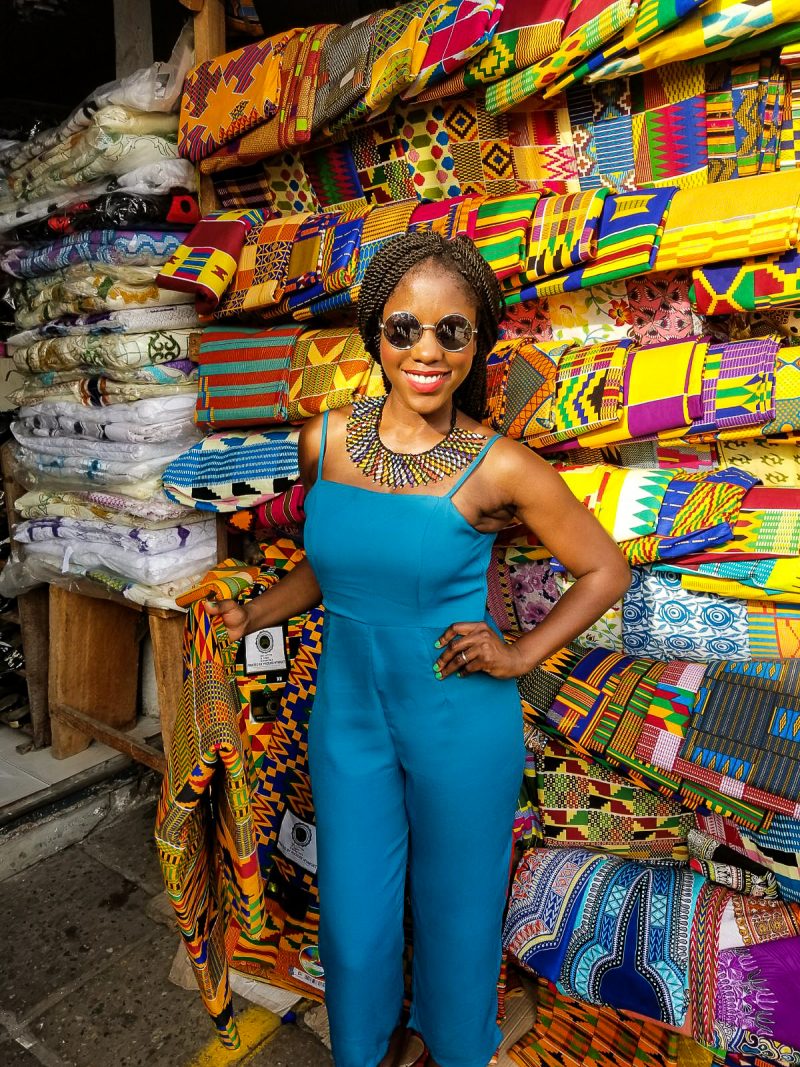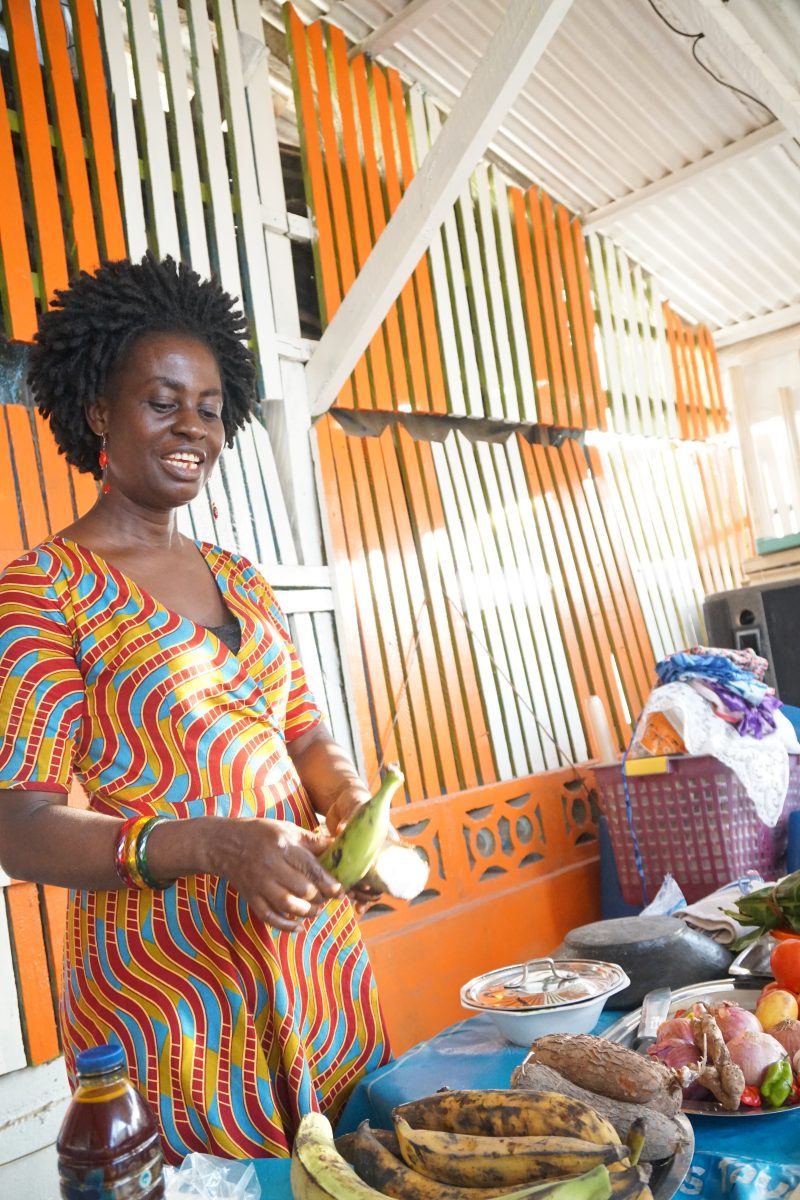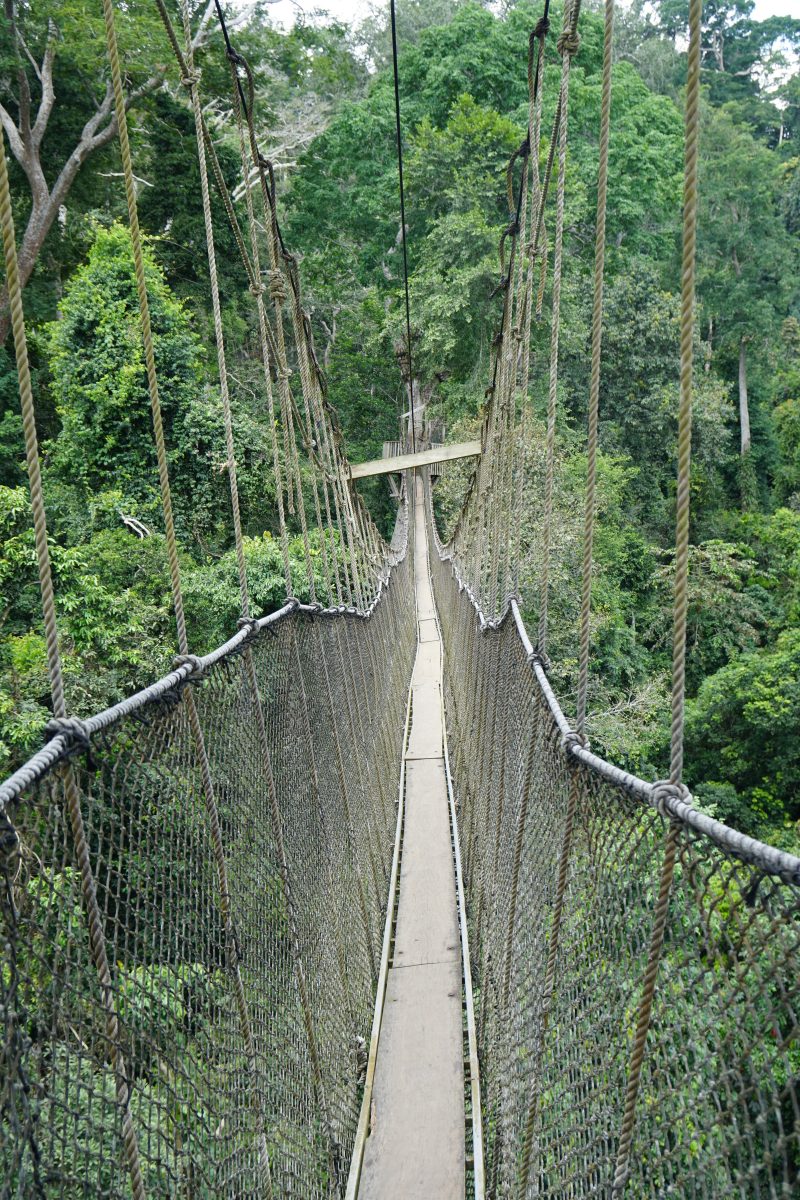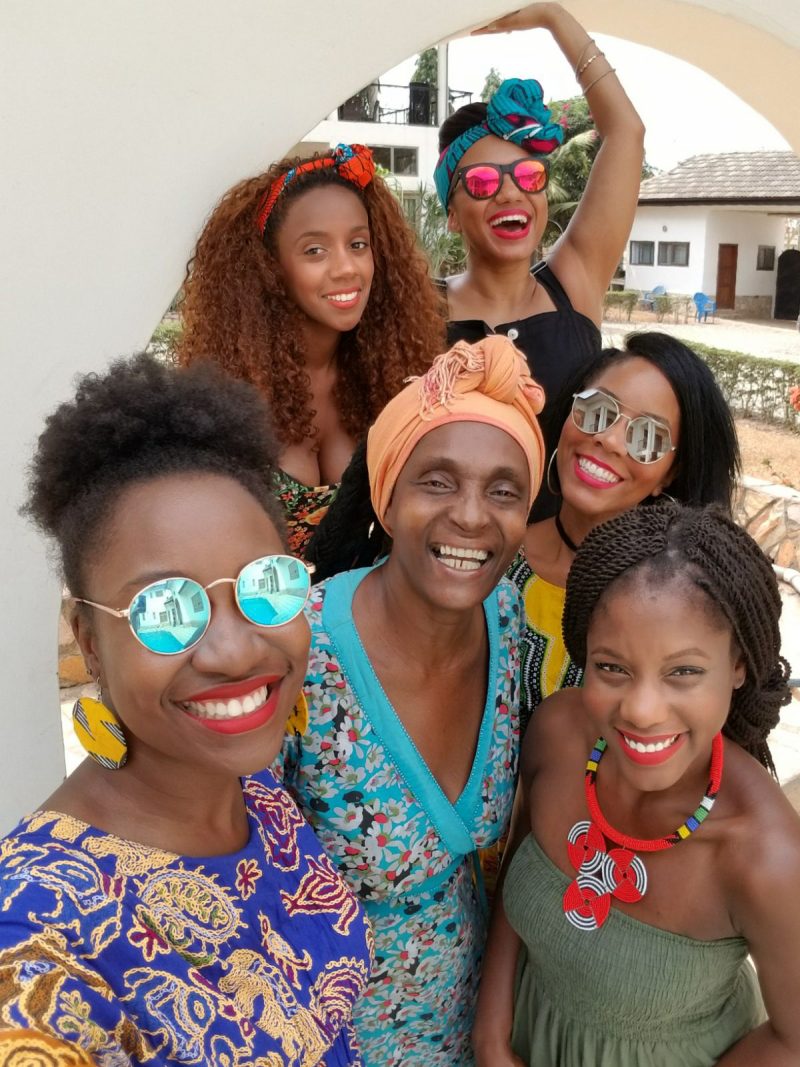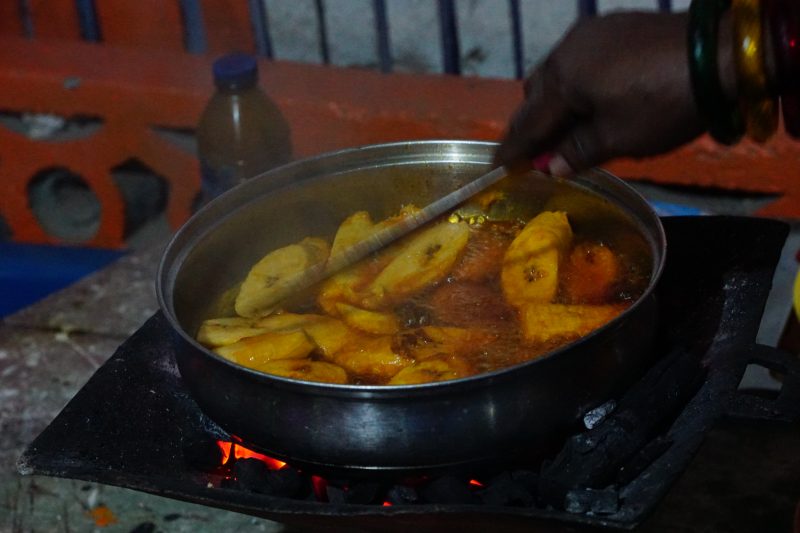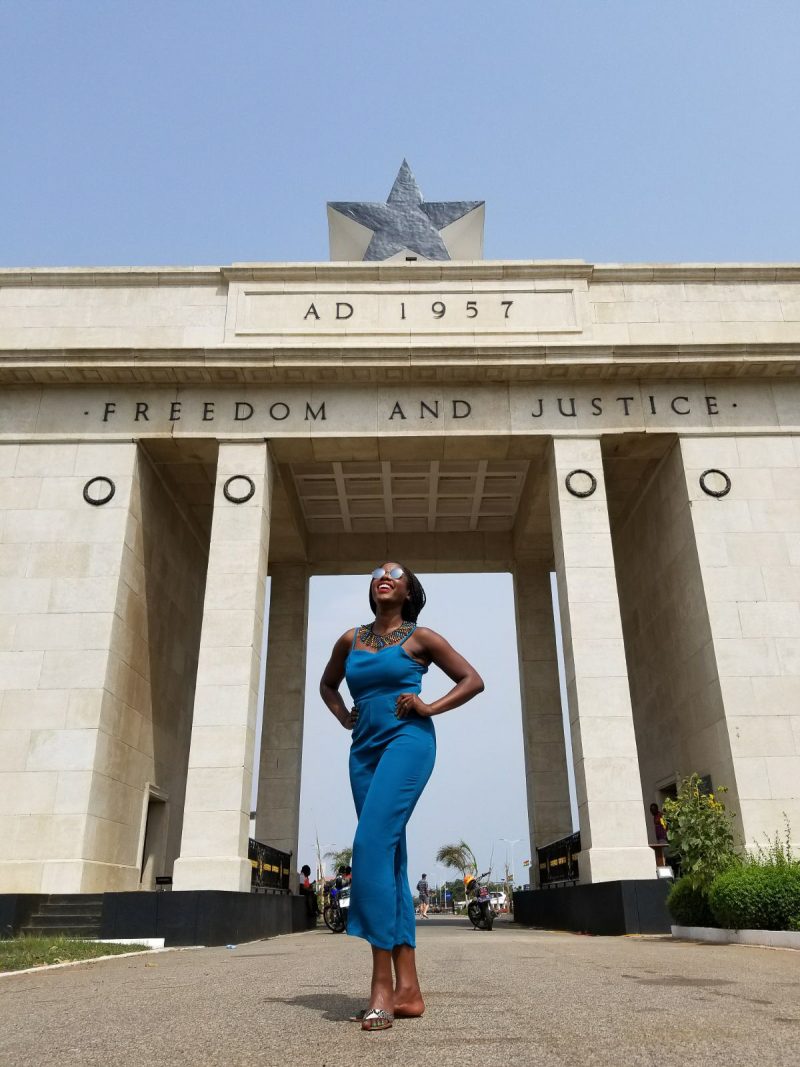I spent one week in Ghana and had the best time exploring Accra, Kumasi, and the Cape Coast. Here’s my guide with essential tips for planning a trip to Ghana so you can do the same!
Ghana. Glorious Ghana. I visited this African nation back in February with some girlfriends, and ever since my (ahem, bomb azz) photos hit the ‘Gram and Facebook, y’all have had questions…
Soooo many questions! So in the interest of transparency, I’ve finally decided to hunker down and write a blog post sharing my tips and itinerary from my one week trip to Ghana.
Why travel to Ghana as a tourist in the first place?
The biggest query I got from friends and followers was what prompted me to visit Ghana at all. And if I’m honest? I’m not surprised that they asked. Ghana is not really on your “average” (Western) tourist’s radar.

Why is this? While outdated and erroneous perceptions about travelling in Africa are partially to blame, it could also be due to the fact that it’s not really marketed as a tourist destination.
Think about it. African nations like Egypt, Morocco, Kenya, Tanzania, and South Africa have positioned themselves as vacation destinations for years, repeatedly top “Where to Travel in 20xx” lists, and have active tourism boards, tour operators, and rapidly expanding tourism infrastructures in place.
Basically, their economies rely heavily on tourism, so the various stakeholders involved work tirelessly to ensure that people like you and I will visit. This is not the case for Ghana.
But having already travelled to the above destinations (click the links above to read my blog posts on them!), I was looking to experience Africa beyond the stereotypical pyramids, souks, and safaris they’re known for.
Enter Ghana. In my opinion, there are three core reasons you should visit:
-To experience the bustling coastal cities and vibrant culinary and arts scenes.
-To visit a prosperous African nation (Ghana defies the single story of poverty and strife in Africa) that hasn’t yet been touched by mass tourism.
-To engage with its painful but important history.
This last point is especially personal for me. Ghana was a major hub for the Transatlantic Slave Trade, so as African-descended people, my girlfriends and I travelled to Ghana to retrace the emotional, physical, and spiritual journey of our ancestors.
However, even if you have no ancestral connection, experiencing this side of Ghana’s history is an integral part of any trip.
Where is Ghana located? And other facts about Ghana
If you’re planning a trip to Ghana, here are some quick facts/reminders of which you should be aware.
-GHANA and GUYANA are two different countries. Ghana is located in West Africa, while Guyana is found on South America’s north Atlantic coast.
-Ghana was once a British colony that was known as the Gold Coast. However, when the country gained independence from Britain in 1957, it was renamed the Republic of Ghana.
-Ghana was the first country in sub-Saharan Africa to gain independence post-colonialism.
-The capital of Ghana is Accra, and the country’s currency is the Ghanaian Cedi. Depending on the day’s exchange rate, $1 USD is about 5 cedis.
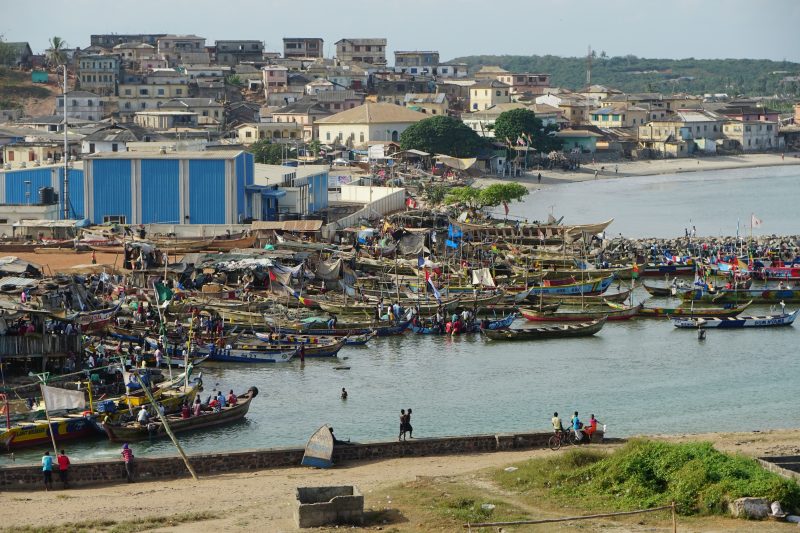
-In terms of cuisine, Ghanaians are renowned for their version of jollof (a rice dish that is popular throughout West Africa). However, tell this to any Nigerian, and they will debate this point vehemently, claiming Nigerian jollof is better. #challenge
-Ghana is rich not only in culture, but in natural resources. It’s Africa’s second-largest producer of both cocoa and gold (which is why it was called Gold Coast). It’s also rich in diamonds and oil.
-Two of the most well-known Ghanaians are named Kofi. Kofi Annan was the secretary-general of the United Nations from 1997- 2006; Kofi Siriboe is a Ghanaian-American actor (and international chocolate drop/ heartthrob). *fans self*
-Ghana has one of the highest GDPs per capita in West Africa and is one of the world’s fastest growing economies. So your single story of poverty-stricken Africa? You can take it and stick it where the sun don’t shine. *wink*
Planning a trip to Ghana
Flights to Ghana
In terms of how to get there, most international flights to Ghana arrive in and depart from Accra’s Kotoka Airport. This means that a visit to the capital will inevitably figure into your plans.
In terms of cost: if you’re flying in from North America, expect to pay around $850 to $1200 USD for airfare depending on your departure city. With that said, I was very lucky to score a cheap flight to Ghana, only paying $750 on Ethiopian Air for a New York City-Accra return ticket. Note that this wasn’t direct: I had a layover in Lome, Togo on both legs, and actually took advantage of this by spending two days in Togo on my way to Accra.
Ghana visa application
Nationals of most countries will require a visa to enter Ghana as a tourist. As there currently isn’t a visa on arrival service available, a Ghana visa must be procured prior to travel.
However, as my friends and I discovered, obtaining a tourist visa to enter Ghana can be pretty onerous, depending on which passport you hold and your current place of residence.
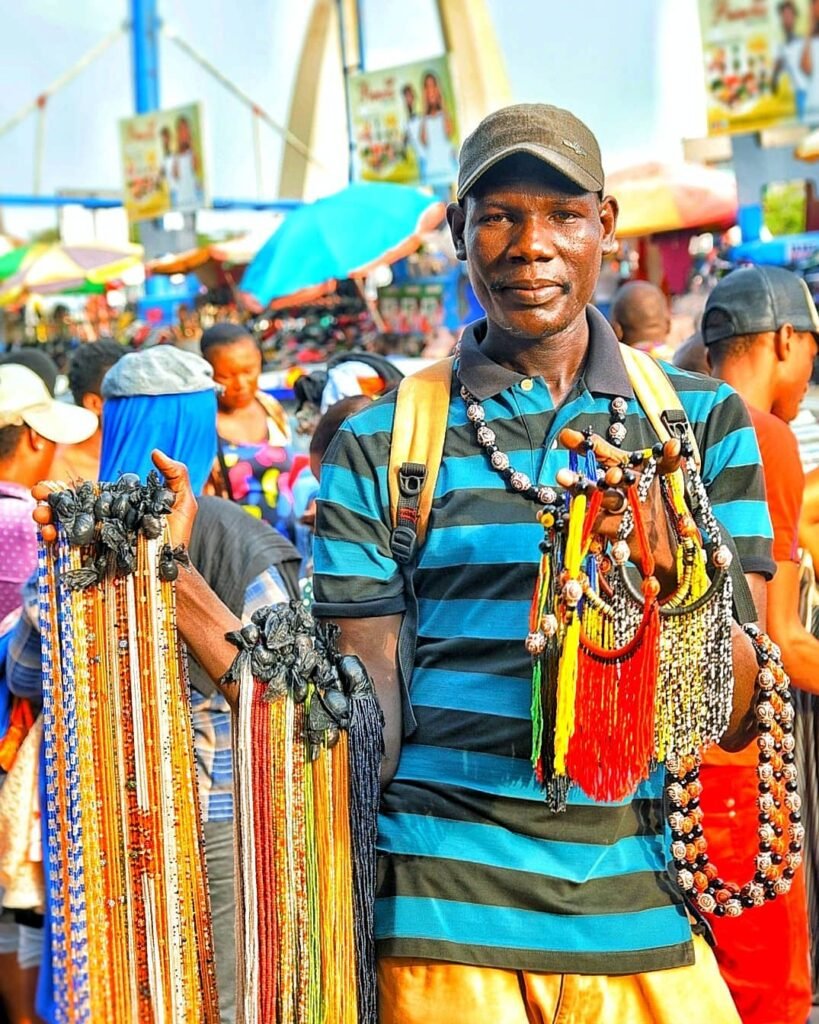
Luckily, as a Canadian passport holder living in New York City, my Ghana visa application process was pretty smooth, though I had to pay a premium for a 24-hour turnaround. I paid $160 USD for a single entry “rush” visa instead of $70 USD for a turnaround of 7 to 10 business days.
I filled out the requisite forms online, got two passport-sized photos taken as part of my application, then went in person to the Ghanaian consulate office in Manhattan to submit my documents and pay a fee. A day later I returned to the office to pick up my visa.
Why you should travel to Ghana: My one week Ghana itinerary
Ghana is an exciting country that’s worth a visit. Even if you’re short on time, one week is just enough to take in the most popular tourist sites in Ghana. I should know: my friends and I had exactly eight days in the country and saw a lot! We divided our time between Accra, Kumasi, and Cape Coast. Here’s what we saw and did in each area.
What to see and do in Accra (4 days)
Accra is Ghana’s largest and capital city, so there’s no shortage of things to do. In fact, you may even be overwhelmed. What follows is a good start:
Kwame Nkrumah Memorial Park and Mausoleum. This site is dedicated to Kwame Nkrumah, the Ghanaian politician and revolutionary who led the country to independence from Britain in 1957. A fascinating and powerful man, he was both the country’s first president and prime minister.
Black Star Square. This important square is walking distance from Kwame Nkrumah Memorial Park and the Accra Sports Stadium. Flanked by Independence Arch, it’s the site of Ghana’s Independence Day festivities and other major gatherings. If nothing else, the Black Star Gate is perfect for a photo op!
Makola Market. Makola Market is Accra’s largest and is filled with every ware you could imagine. Some may find the crowds, noise levels, and overall busyness intimidating, but if nothing else, the market gives a great perspective into the every day life of Ghanaians. I particularly loved the textile shops– so colourful!
Centre for National Culture. This market is the way smaller, way more subdued version of Makola Market. You’ll find most of the same items on sale here (mostly textiles and jewelry), but at a much higher cost.
Sandbox Beach Bar. After all the shopping and exploring, this seaside bar is a welcome reprieve! With calming views of Labadi Beach, live music, and tasty barbecue bites, Sandbox was a welcome chill-out spot after a hectic day of navigating the city.
Boti Falls. This set of waterfalls is a two hour drive from Accra, in the Eastern region of Ghana, and is supposed to be a great day trip. Unfortunately for us, when we got there we were told that, due to drought-like conditions, there was no water in the waterfall and the site was closed! Tail between our legs, we made the long trek back to Accra, but not without a photoshoot, because #vanity. Ha!
Cape Coast Castle and Elmina Castle. These are two of the forty or so “slave castles” where enslaved blacks were sold, corralled, abused, and shipped to “The New World”. While to learn of the inhumane treatment suffered by enslaved blacks here is a punch to the gut, the guided tours we did were extremely well executed and informative.
Ghanaian cooking workshop. This was a must! The three hour class, lead by “Auntie Esi”, is a crash course in learning how to prepare authentic Ghanaian dishes. We made fufu, palava sauce, red red, and so much more. At $11 USD a person, it’s also a steal– after preparing a massive feast, you’ll get to eat it, so arrive with a very empty belly!
Kakum National Park. If you crave a bit of adventure, then Kakum is for you. The park encompasses a rainforest that’s home to a slew of endangered animals and critters. However, its most prominent feature is a canopy walk comprised of seven rope bridges that are suspended from trees over 130 feet off the ground. *gulp*
Tips for Where to Stay in Ghana
-Hotel accommodation (of 3 and 4 stars) is abundant in Accra, but can be pricey. We booked a three bedroom condo for our party of five girls in the Cantonments, which is an affluent suburb. While the condo was both spacious and spotless, we were unimpressed with the business acumen of the person we were renting from, and thus cannot recommend it.
-In Kumasi, we stayed at Villa Sankofa. Well-priced and cozy, it is managed by a lovely lady who moved to Ghana over 20 years ago from Jamaica. She made us a Jamaican breakfast (saltfish and fried dumpling omg!) and it was one of the best meals we had on the trip! #butmaybeimbiased
-In Cape Coast we stayed at the Ridge Royal Hotel. While the buffet breakfast was nothing to write home about, the grounds were beautiful.
Tips for Where to Eat in Ghana
To be honest, I don’t think you can go wrong food-wise if you stick to locals’ recommendations! A number of the girls in our group had a list of restaurants suggested to them by Ghanaian friends, so we stuck to those religiously. We thoroughly enjoyed the meals and the atmosphere at Buka and Chez Clarisse, which are both located in Accra.
Getting around Ghana
We hired a driver for the week (based on a friend’s recommendation) and were thankful we did as it look a lot of the stress and guesswork out of getting from Point A to Point B. For around $100 USD a day our crew of five girls were shuttled around in an air conditioned van. Apparently Uber is also available in Ghana, but I don’t have any experience using it there.
The takeaway: You should think about planning a trip to Ghana right now!
As you can see from my bloated itinerary, one week in Ghana is barely enough– there are so many things to see and do! My aim with writing this was to encourage to you considering vacationing in this part of the world– not only is the African continent subject to SO many stereotypes, countries in Western Africa don’t get much love from tourists.
Ghana is the perfect introduction to the African continent if you’re a bit wary: it’s safe, clean, easy to get around, and very historically interesting. Beyond that, there are beaches, great food, and loads of culture.
And for people like me, who have travelled extensively, it’s refreshing to go to a place that doesn’t survive on tourism– my crew and I felt as though we were able to get a more “authentic” experience while contributing to the local economy.
So, even if you only have one week to spare, I hope you’ll think of planning a trip to Ghana! I’m already looking forward to going back!
Have you ever travelled to Ghana or thought about it? And to my Ghanaian folks, what did I leave out? Would love to hear your suggestions!
